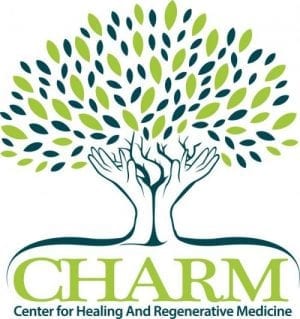
Each year, I typically attend one or two of the leading regenerative medicine/orthobiologic conferences. These symposiums often include speakers from a variety of backgrounds including physicians, lawyers, veterinarians and research scientists. These are professionals committed to improving the knowledge base regarding the most current scientific evidenced in orthobiologics. I have had the privilege of speaking at a couple of conferences myself. A common topic that is brought up in the lectures involves the use of embryonic products such as amniotic cells. This was certainly a widely discussed topic at the recent TOBI (The Orthobiologic Institute) conference I attended. The overwhelming sentiment, among the speakers and attendees, is that amniotic/embryonic/umbilical products are NOT stem cells and should not be marketed as such. This position is based off research that has been replicated several times. One such study*, by Panero, et al., was recently published in the American Journal of Sports Medicine. I would like to summarize what he found in his research.
It is well established that there are mesenchymal stem cells (MSCs) in amniotic fluid. Once manufactured into a commercial product, these cells are purported to be alive, viable, highly concentrated, and containing good quantities of growth factors. Dr. Panero’s study aimed to confirm this claim through independent laboratory analysis of different amniotic products along with a comparison to adult bone marrow. One question is whether amniotic MSCs survive the processing/preservation needed for commercial amniotic products. He found that about ½ of the cells in the amniotic products were dead. The overwhelming majority of the live cells were found to be either white blood cells or red blood cells, NOT MSCs. The few MSCs that were found were not viable. In other words, they could not grow, or expand, these cells in culture. In contrast, the bone marrow sample showed live MSCs that were readily expanded into colonies in culture. This study also showed that the growth factor concentrations in the amniotic products were often at, or below, normal physiologic levels.
There are specific scientific criteria for what defines a stem cell. So, why are these companies making the claims they are? It seems like some of these companies have extrapolated cherry-picked data to make their claims based on very thin evidence. Most of these products were fast-tracked to approval for use through a pathway that does not require clinical data. This leads to inherent questions of safety and efficacy. The safety concerns have been validated by the recent recall of products due to widespread infections. Beyond the safety risks, another concern is the lack of standardization among the products, even within the same batches.
My opinion is that amniotic products are generally safe. They can be clinically useful due to the application of growth factors. I do not use them currently because 1. There is a very narrow therapeutic window of FDA-accepted use 2. We can generally provide growth factors in higher concentration from your own body 3. At a lower cost and higher yield from PRP or BMAC. 4. Studies have also recognized that there are live, and viable, MSCs from bone marrow.
We are seeing that these amniotic products are often misrepresented by the companies that produce them. This misstated information is then easily misconstrued by medical providers (who are oftentimes not physicians) who then mislead the patients into believing they are getting something that they are not. Many practitioners are using terms like “stem cells” to drive traffic without concern for appropriate use or end results. Clinicians need to understand the products, accurately represent what they are, and be transparent on what they hope to accomplish with their use. These products have no FDA-recognized claims to what disease they treat and they should NOT be considered stem cells. It is a violation of FDA and FTC regulations to state otherwise. Patients, as well as physicians, need to learn to ask the right questions, and approach amniotic products with a healthy dose of skepticism.
Ben Rawson, DO
*Panero, A. J., Hirahara, A. M., Andersen, W. J., Rothenberg, J., & Fierro, F. (2019). Are Amniotic Fluid Products Stem Cell Therapies? A Study of Amniotic Fluid Preparations for Mesenchymal Stem Cells With Bone Marrow Comparison. The American Journal of Sports Medicine, 47(5), 1230–1235.



